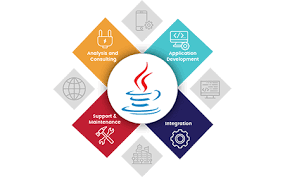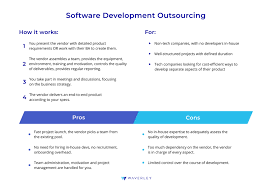Exploring the Evolution of Computer Software Development
The World of Computer Software Development
Computer software development is a dynamic and ever-evolving field that plays a crucial role in shaping the digital landscape of today’s world. It involves the creation, design, testing, and maintenance of software applications that run on various devices, from computers to smartphones and beyond.
The Process of Software Development
Software development typically follows a structured process that includes several key stages:
- Planning: This stage involves defining the project scope, requirements, and objectives.
- Design: Developers create a blueprint for the software based on the requirements gathered during the planning phase.
- Implementation: The actual coding of the software takes place during this phase, where developers bring the design to life.
- Testing: Rigorous testing is conducted to ensure that the software functions as intended and is free of bugs or errors.
- Deployment: The software is released to users after successful testing and approval.
- Maintenance: Ongoing updates, bug fixes, and improvements are made to ensure that the software remains functional and up-to-date.
The Role of Developers
Software developers are at the heart of the software development process. They possess expertise in programming languages such as Java, C++, Python, and more, allowing them to write code that powers applications across various platforms.
In addition to technical skills, developers must also have problem-solving abilities, creativity, and attention to detail to create efficient and user-friendly software solutions.
The Future of Software Development
As technology continues to advance at a rapid pace, the field of computer software development shows no signs of slowing down. Emerging trends such as artificial intelligence, machine learning, cloud computing, and Internet of Things (IoT) are reshaping how software is created and utilized.
In this fast-paced industry, staying current with new technologies and best practices is essential for developers to remain competitive and deliver cutting-edge solutions that meet the evolving needs of businesses and consumers alike.
8 Essential Tips for Effective Computer Software Development
- Write clean and readable code for better maintainability.
- Use version control systems like Git to track changes in your codebase.
- Document your code to make it easier for others to understand and use.
- Test your code thoroughly to catch bugs early in the development process.
- Follow coding standards and best practices to ensure consistency across the project.
- Regularly update dependencies and libraries to keep your software secure and up-to-date.
- Optimize performance by profiling and refactoring inefficient code sections.
- Collaborate with team members through effective communication and regular code reviews.
Write clean and readable code for better maintainability.
Writing clean and readable code is a fundamental tip in computer software development that significantly enhances the maintainability of a project. By adhering to coding best practices and conventions, developers can create code that is easy to understand, modify, and debug. Clean code reduces the likelihood of introducing errors during maintenance tasks and allows for smoother collaboration among team members. Prioritizing readability not only improves the efficiency of future development efforts but also contributes to overall code quality and long-term project success.
Use version control systems like Git to track changes in your codebase.
Utilizing version control systems like Git is crucial in computer software development to efficiently track changes in your codebase. By using Git, developers can easily manage different versions of their code, collaborate with team members seamlessly, and revert to previous versions if needed. This practice not only enhances code organization and collaboration but also ensures the integrity and stability of the software development process.
Document your code to make it easier for others to understand and use.
Documenting your code is a crucial tip in computer software development as it significantly enhances the readability and usability of the codebase for others. By providing clear and concise comments and explanations within the code, developers can effectively communicate the purpose, functionality, and logic behind each component. This practice not only facilitates collaboration among team members but also ensures that future developers can easily grasp the code structure, make necessary modifications, and troubleshoot issues efficiently. Ultimately, thorough documentation serves as a valuable resource that contributes to the overall quality and maintainability of software projects.
Test your code thoroughly to catch bugs early in the development process.
Testing your code thoroughly is a crucial tip in computer software development to catch bugs early in the development process. By conducting rigorous testing, developers can identify and address potential issues before they escalate, ensuring that the software functions as intended and delivers a seamless user experience. Early bug detection not only saves time and resources but also enhances the overall quality and reliability of the final product, ultimately leading to greater customer satisfaction.
Follow coding standards and best practices to ensure consistency across the project.
Following coding standards and best practices is essential in computer software development to maintain consistency and quality throughout the project. By adhering to established guidelines, developers can write code that is more readable, maintainable, and scalable. Consistent coding practices also facilitate collaboration among team members, improve code review processes, and ultimately lead to a more efficient development workflow. Embracing coding standards helps create a solid foundation for the project and promotes a higher level of professionalism in software development endeavors.
Regularly update dependencies and libraries to keep your software secure and up-to-date.
Ensuring the security and efficiency of your software is paramount in computer software development. One crucial tip is to regularly update dependencies and libraries to keep your software secure and up-to-date. By staying current with the latest versions of libraries and dependencies, developers can address vulnerabilities, improve performance, and leverage new features that enhance the overall functionality of the software. This proactive approach not only helps mitigate security risks but also ensures that your software remains competitive in an ever-evolving technological landscape.
Optimize performance by profiling and refactoring inefficient code sections.
To optimize performance in computer software development, it is essential to identify and improve inefficient code sections through profiling and refactoring. Profiling helps developers pinpoint areas of the code that are causing bottlenecks or consuming excessive resources, allowing them to prioritize optimization efforts effectively. Refactoring involves restructuring the code to make it more efficient, readable, and maintainable without changing its external behavior. By regularly profiling and refactoring inefficient code sections, developers can enhance the overall performance and scalability of their software applications.
Collaborate with team members through effective communication and regular code reviews.
Effective collaboration among team members is essential in computer software development. By fostering open communication channels and conducting regular code reviews, developers can ensure that everyone is on the same page and working towards a common goal. Code reviews not only help identify errors and optimize code quality but also provide valuable learning opportunities for team members. Through collaboration and constructive feedback, teams can enhance their productivity, creativity, and overall success in delivering high-quality software solutions.












